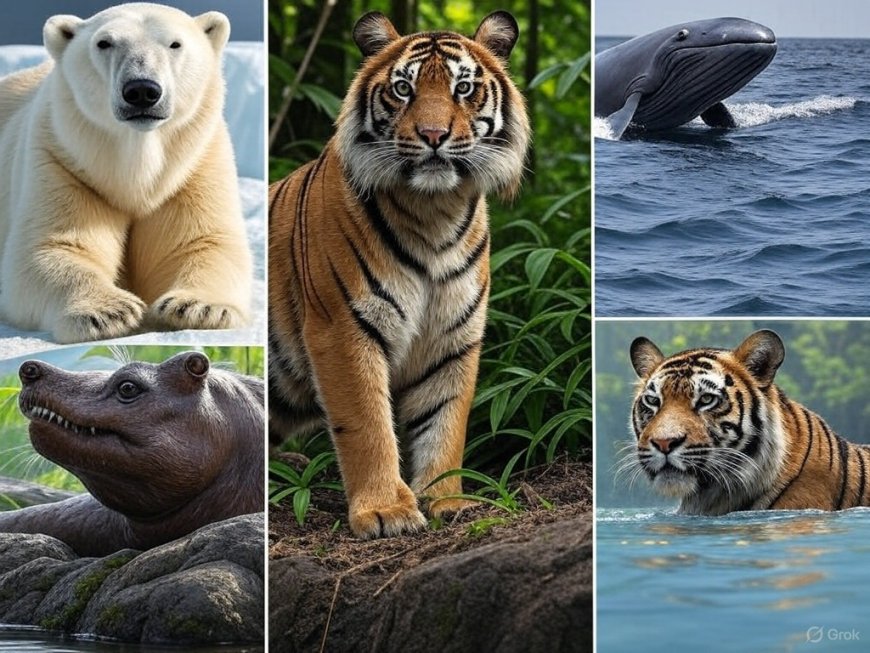Why Endangered Species Day Matters More Than Ever in 2025: A Wake-Up Call for Humanity
Explore the importance of Endangered Species Day 2025, how global biodiversity is at risk, and what actions can be taken to protect endangered species. Includes expert insights and trusted conservation resources.

Introduction: A Global Moment for Wildlife Awareness
Each year, on the third Friday of May, the world observes Endangered Species Day—a reminder of our shared responsibility to protect animals and plants on the brink of extinction. In 2025, the urgency is louder than ever. With ecosystems collapsing and climate change intensifying, this global observance serves not just as a commemoration but as a call to action.
The U.S. Endangered Species Act marked a turning point in conservation history. Yet, despite international efforts, the number of endangered species has increased by over 40% in the past two decades, according to the International Union for Conservation of Nature (IUCN). This alarming trend reveals the fragility of biodiversity and the role humans play in its survival—or demise.
What is Endangered Species Day?
Endangered Species Day, initiated by the U.S. Senate in 2006, promotes education, awareness, and action around endangered species and their habitats. It’s a day to reflect on the impact of human activity on wildlife, from poaching and habitat destruction to pollution and climate change.
The Endangered Species Coalition organizes events and educational programs globally to empower schools, communities, and conservation organizations. Visit their official site to explore activities, webinars, and toolkits.
Why Are Species Becoming Endangered?
Species are classified as endangered when their populations decline so drastically that extinction becomes a real threat. This can be caused by:
-
Habitat Loss: Urbanization, deforestation, and agriculture wipe out natural habitats.
-
Climate Change: Alters migration patterns, breeding seasons, and ecosystems.
-
Pollution: Chemicals, plastics, and waste poison environments.
-
Overexploitation: Overfishing, illegal wildlife trade, and trophy hunting.
-
Invasive Species: Non-native species disrupt local ecosystems and food chains.
One stark example is the vaquita, a porpoise native to the Gulf of California, which now has fewer than 10 individuals left in the wild. Their rapid decline is directly tied to illegal fishing practices.
The Real Cost of Biodiversity Loss
Biodiversity isn't just about saving cute animals—it’s about maintaining ecological balance and ensuring human survival. Healthy ecosystems purify air and water, pollinate crops, and regulate climate.
According to a recent WWF Living Planet Report, wildlife populations have declined by an average of 69% since 1970. This isn’t just a wildlife crisis; it’s a human crisis.
When apex predators like tigers or wolves disappear, the food chain collapses, leading to the overpopulation of prey species and a ripple effect on forests, rivers, and even agriculture.
What You Can Do on Endangered Species Day 2025
1. Educate Yourself and Others
Learning is the first step. Use trusted resources like National Geographic and WWF’s endangered species directory to understand what's at stake.
2. Support Ethical Conservation Efforts
Donate to or volunteer with reputable organizations such as:
3. Make Conscious Consumer Choices
Avoid products made from endangered animals or non-sustainable materials. Check certifications like Fair Trade, Rainforest Alliance, or MSC Certified Seafood.
4. Participate in Local Events
Many zoos, schools, and communities host clean-up drives, awareness walks, and educational programs on Endangered Species Day. Look for listings on your city's wildlife or environment department website.
5. Use Your Voice
Advocate for policies that protect biodiversity. Contact lawmakers, share information on social media, and support petitions that fund conservation projects.
Case Study: India’s Role in Global Conservation
India, with its rich biodiversity and unique ecosystems, plays a pivotal role in global conservation efforts. Projects like Project Tiger and Project Elephant have made significant strides in wildlife preservation.
According to the National Tiger Conservation Authority (NTCA), India is home to over 70% of the world’s tiger population. The government’s increased investment in national parks and anti-poaching initiatives has helped stabilize the numbers—proving that focused efforts can lead to meaningful change.
Final Thoughts: The Power of Awareness
Endangered Species Day 2025 is not just a symbolic gesture—it’s a loud and clear message that nature cannot wait. Every action counts, whether it's signing a petition, changing your buying habits, or simply sharing a fact about an endangered species.
When we protect animals and their habitats, we are safeguarding the future—for ourselves, our children, and the planet. Let this day be a turning point, not just a talking point.
What's Your Reaction?
 Like
0
Like
0
 Dislike
0
Dislike
0
 Love
0
Love
0
 Funny
0
Funny
0
 Angry
0
Angry
0
 Sad
0
Sad
0
 Wow
0
Wow
0



















































